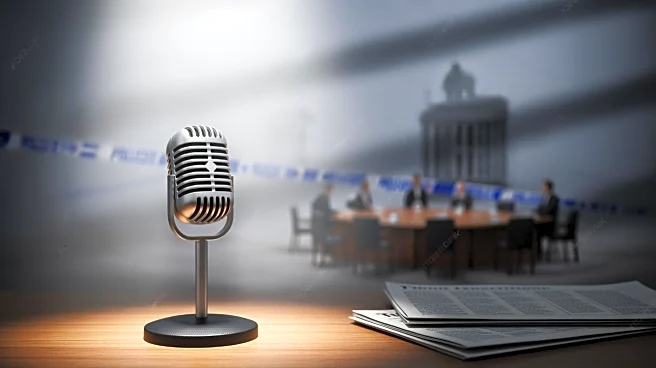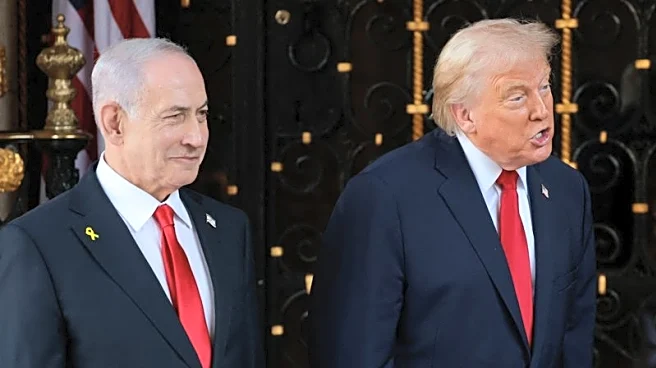What's Happening?
Major media outlets, including Fox News, CNN, and others, have refused to sign new press access rules imposed by the Pentagon. The rules, championed by Defense Secretary Pete Hegseth, require reporters
to pledge not to use unauthorized material, even if unclassified, or risk losing access to the Pentagon. The Pentagon Press Association has criticized the policy, stating it gags employees and threatens retaliation against reporters. The association and various news organizations argue that the policy is unprecedented and threatens journalistic protections. Despite revisions, the updated language remains unacceptable to many newsroom leaders and media lawyers.
Why It's Important?
The refusal by major media outlets to comply with the Pentagon's new rules highlights a significant conflict between government control and press freedom. The policy could severely limit journalists' ability to report on national security issues, impacting public awareness and transparency. The move is seen as an attempt to restrict independent coverage and scrutiny of the Trump administration, raising concerns about government influence over the media. This standoff underscores the importance of maintaining a free and independent press as a cornerstone of democracy, ensuring that the public remains informed about government actions.
What's Next?
Some news organizations are considering legal action against the Pentagon's restrictions. The ongoing dispute may lead to further negotiations or revisions of the policy. Media outlets are committed to continuing their coverage of the U.S. military, with or without press credentials, and are encouraging tipsters to provide information. The situation may prompt broader discussions about press freedom and government transparency, potentially influencing future policies and practices regarding media access to government institutions.
Beyond the Headlines
The controversy over the Pentagon's press access rules raises ethical and legal questions about the balance between national security and the public's right to know. The policy's demand for reporters to acknowledge that harm flows from unauthorized disclosures challenges the principles of investigative journalism. This development could lead to long-term shifts in how media organizations interact with government entities, potentially affecting the landscape of press freedom in the U.S.











